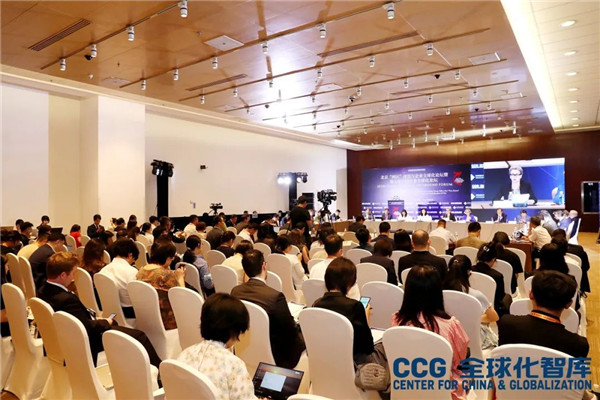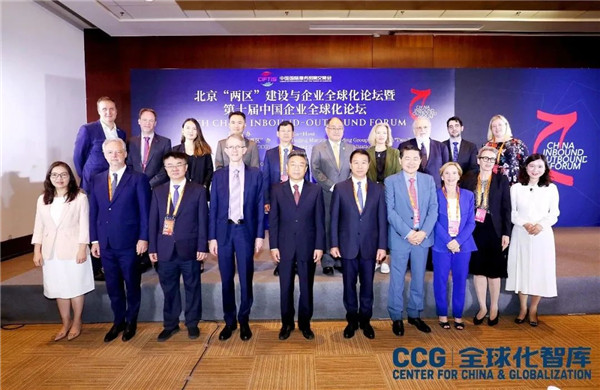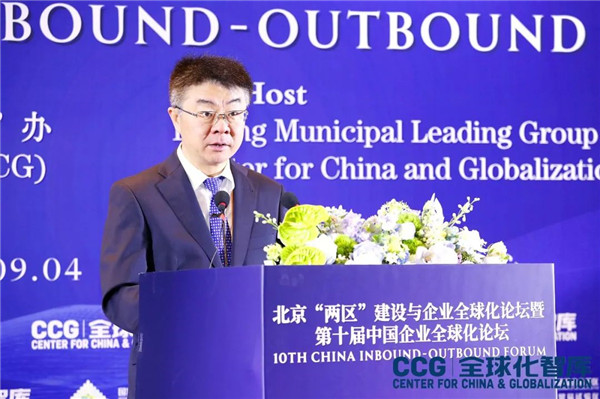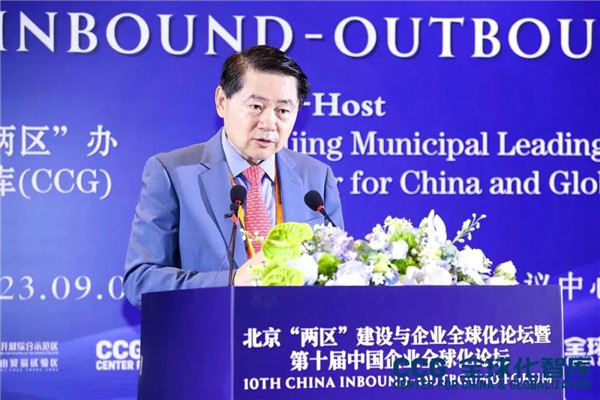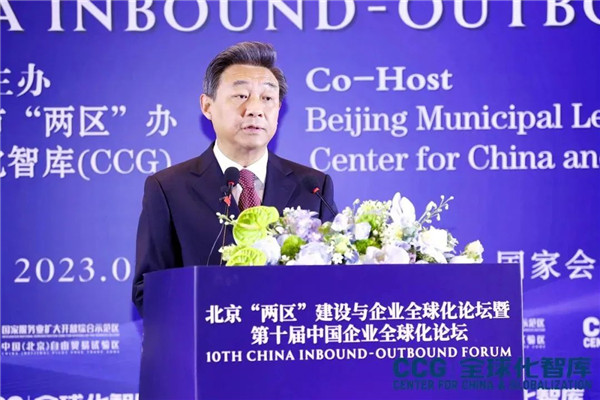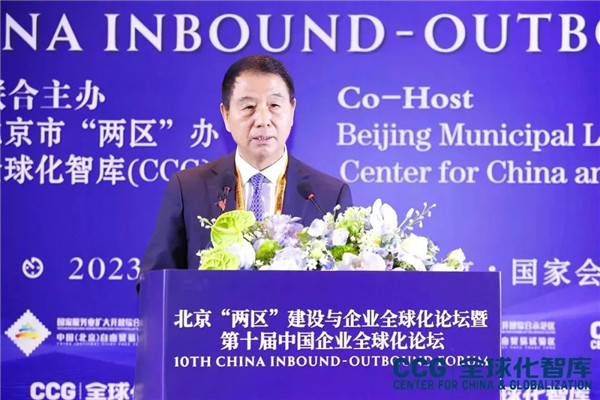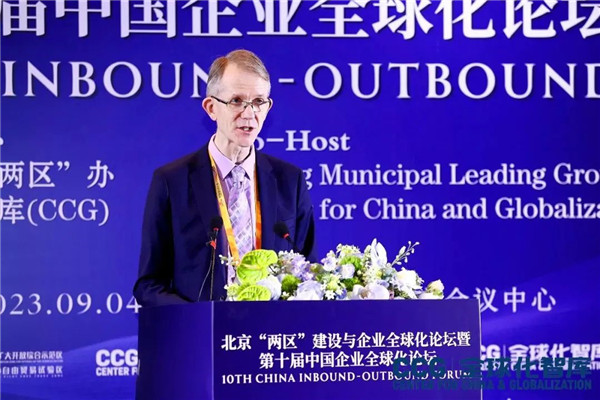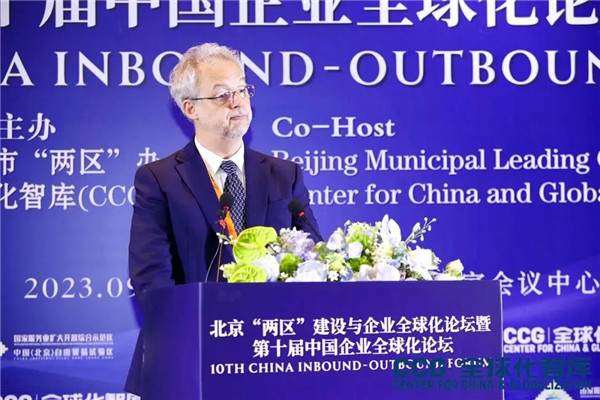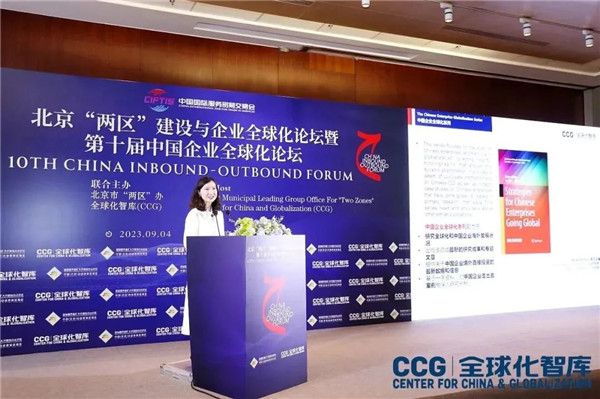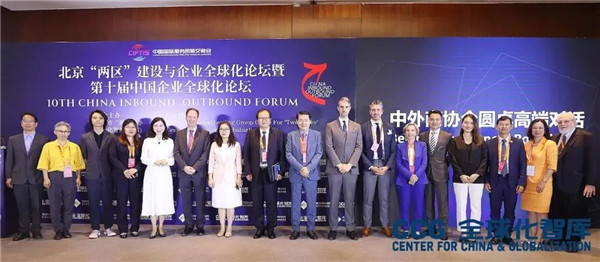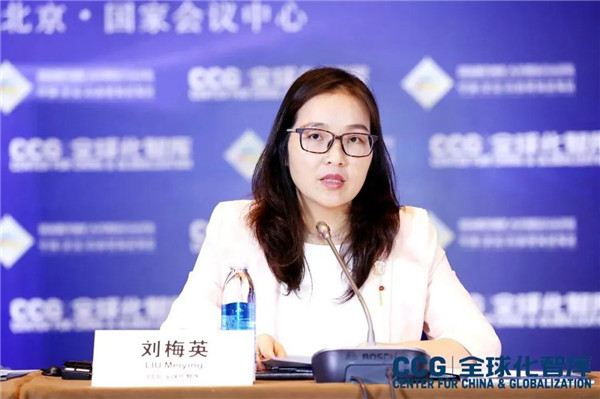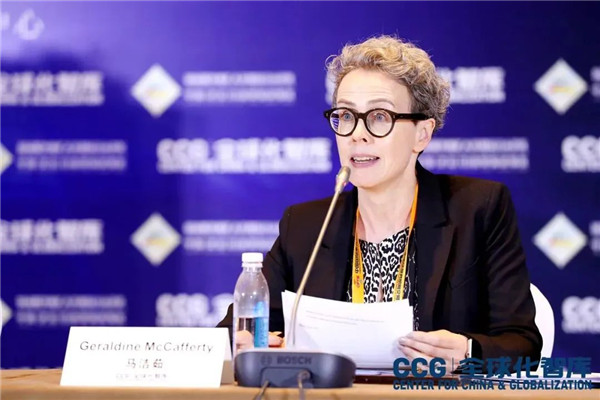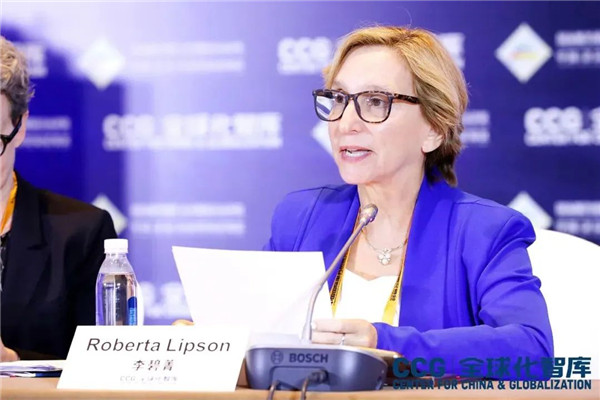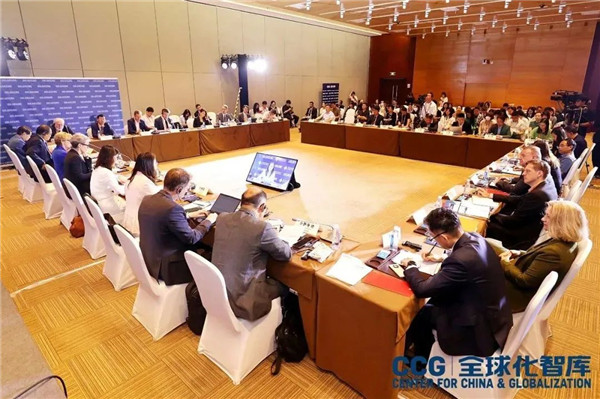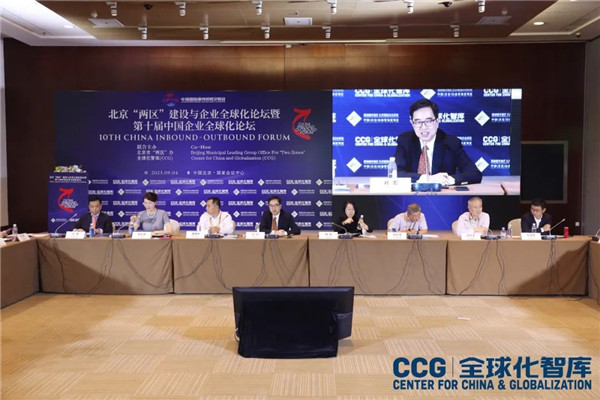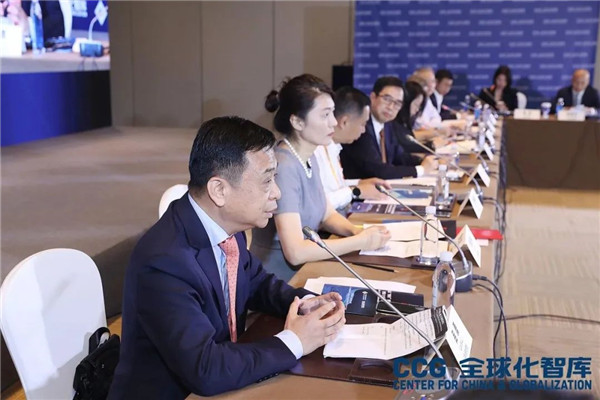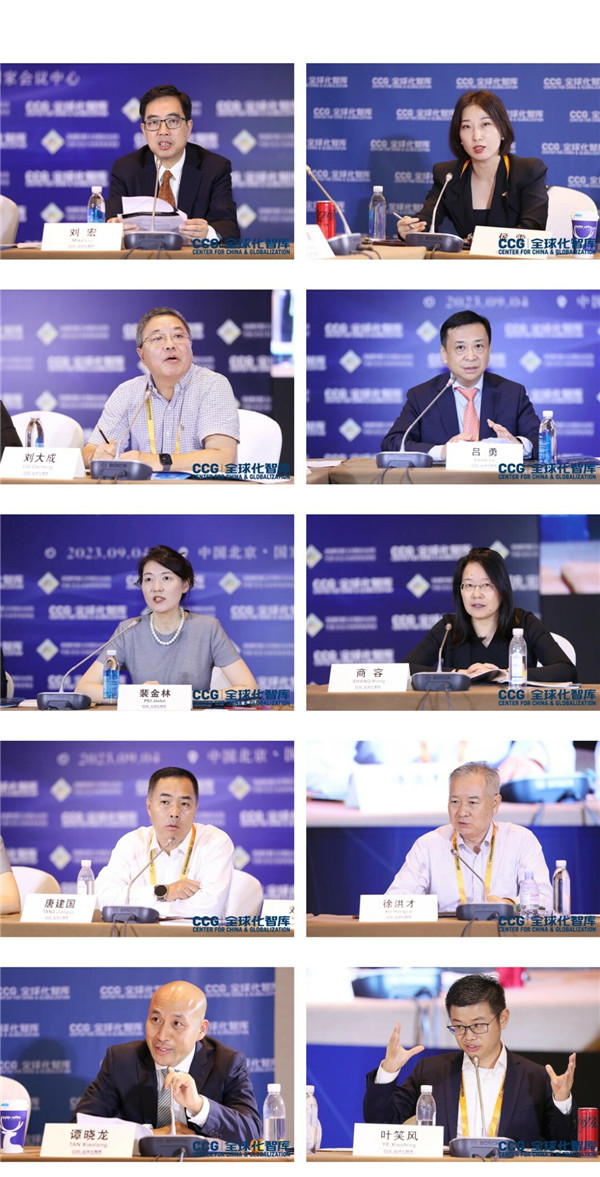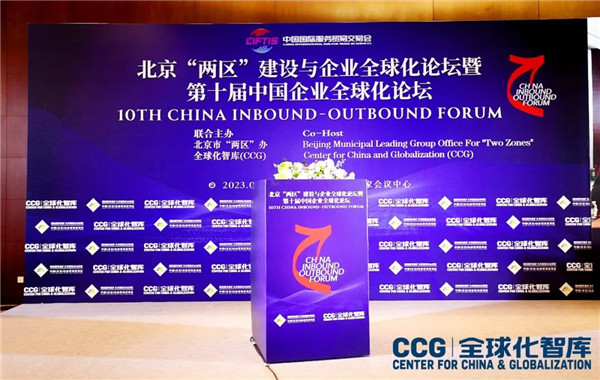10th China Inbound-Outbound Forum
On September 4, 2023, CCG 10th China Inbound-Outbound Forum was held at China National Convention Center in Beijing. This is the fourth time that CCG has partnered with the Beijing Municipal Commerce Bureau to participate in of the China International Fair for Trade in Services (CIFTIS) to focus on major policy initiatives regarding trade in sectors ranging from digital technologies and innovation to decarbonization.
The event was co-organized by the Center for China and Globalization (CCG) and the Beijing Two Zones Office during CIFTIS. The forum welcomed officials from the Beijing Municipal People’s Congress and the Two Zones Office, diplomatic envoys and senior officials in China, policy experts from various ministries, as well as representatives from top domestic and international players in the service trade sector.
Roundtable discussions and dialogues were held as part of the forum on topics ranging from “Leveraging Beijing’s ‘Two Zones’ Policy for International Trade in Services”, “Trends in the Chinese Economy and Investment Strategies”, “The Quest for Innovation: Institutions and Ecosystems”, and “Pathways to Net-Zero and Green Transition: Business Opportunities”. The forum also featured the launch of CCG’s new book Strategies for Chinese Enterprises Going Global (Springer 2023).
Ding Yong, Director-General of Beijing Municipal Commerce Bureau, said that since the “Two Zones” in Beijing was launched in 2020, the project has seen fruitful results and in the future Beijing will continue in this spirit to provide guidance and increase openness at multiple levels, creating a market-oriented, international business environment based in law that also showcases the attractiveness of Beijing as an open place for win-win business. As China continues to reform and open up, we must remain aware of the complexities in the international environment and constantly emerging challenges and technologies that we must all work more closely to seize in this new wave of global economic and social development.
Hou Junshu, Vice Chairman of the Standing Committee of Beijing Municipal People’s Congress, pointed out that Beijing is actively advancing the development of the “Two Zones”, which is deeply aligned with international high-standard economic and trade regulations, contributing to the establishment of a high-standard institutional framework for open service industries and promoting higher-level openness and higher-quality development for Beijing. He proposed three suggestions for Beijing’s advancement of the “Two Zones”: expanding foreign investment access to continuously broaden the scope and depth of openness, innovating platform mechanisms to enhance coordination, and improving the quality and efficiency of services while continuously optimizing a fair and transparent business environment. Beijing possesses abundant resources and unique advantages, which provide immense development opportunities. Mr. Hou expressed the hope that everyone will continue to work together to promote the development of the “Two Zones” and create a brighter future for win-win cooperation and mutual benefit in Beijing’s open-platform development.
During the event, CCG released its latest publication Strategies for Chinese Enterprises Going Global. Mabel Miao, CCG Secretary-General moderated the launch event, emphasizing that the publication of this book is of significant importance as it provides research and analysis on fundamental issues that Chinese enterprises face in expanding abroad. It also proposes relevant solutions in areas such as legal compliance, talent development, financing, and provides a clear policy perspective on the future development direction of the Belt and Road Initiative.
During the Beijing “Two Zones” Roundtable, Liu Meiying, Deputy Director-General of Beijing Municipal Commerce Bureau and Dedicated Deputy Director-General of Beijing Municipal Leading Group Office for the “Two Zones”, stated that at in terms of industrial openness, Beijing leads the country in four areas: technological innovation, financing, biopharmaceuticals, and professional services. Beijing has consistently focused on facilitating cross-border flows in data, capital, and intellectual property. It has also taken many pioneering initiatives with the support and guidance of national ministries and commissions. In terms of foreign talent and foreign-funded enterprises, Beijing’s next step will be to promote an integrated one-stop mechanism for frequent issues that foreign companies and individuals face, making it easier for foreign-funded enterprises to do business and streamlining channels for information.
Geraldine McCafferty, Deputy Head of Mission, British Embassy Beijing, said that this year, UK had the privilege of the being secretary of this CIFTIS. She stated that the UK is pleased to deepen its trade relationship with China, and the positive trade relationship brings benefits both for the two countries and globally. There are many opportunities to work together and she set up key areas that UK and China can cooperate, like education and multilateral trade. Although, there are some challenges stemming from this trade, the UK does not believe in decoupling and has been taking a targeted approach to manage these challenges. The UK does not want challenges to become a barrier for ongoing trade and investment. China is an ever-expanding market and international business can play an important role to support China’s economic objectives. The more governments reform and open up economies, the better it is for global prosperity. She hopes that Beijing Two Zones Initiatives will play a leading role in opening up and boosting of trade business in and with China.
Roberta Lipson, Founder of United Family Healthcare and Vice Chair of AmCham China, shared insights based on United Family Healthcare’s own development experience. She mentioned that United Family Healthcare, founded in Beijing, has benefited from Beijing’s open environment and increasingly streamlined policy systems, which have contributed significantly to the remarkable progress in its medical resources and facility development over the past few years. In particular, the “Two Zones” policy implemented in Beijing in recent years reflects the city’s inclusive approach and international atmosphere in economic and trade development. This has been conducive to attracting more outstanding talents and investments, both domestically and internationally, leading to continuous improvements in service quality across various aspects and promoting overall business development.
Beijing “Two Zones” Roundtable: Leveraging Beijing’s “Two Zones” Policy for International Trade in Services
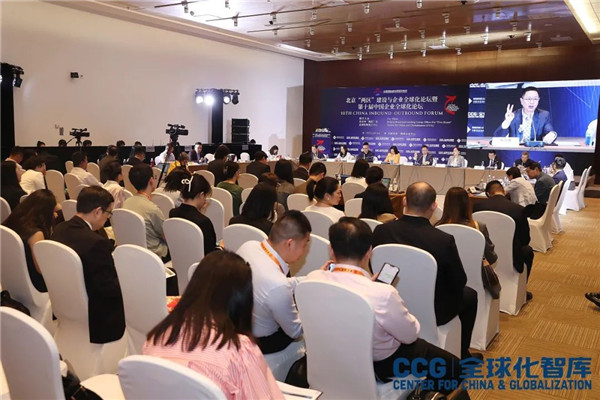
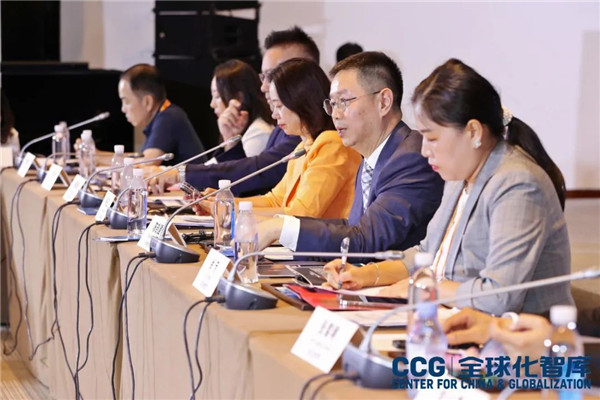

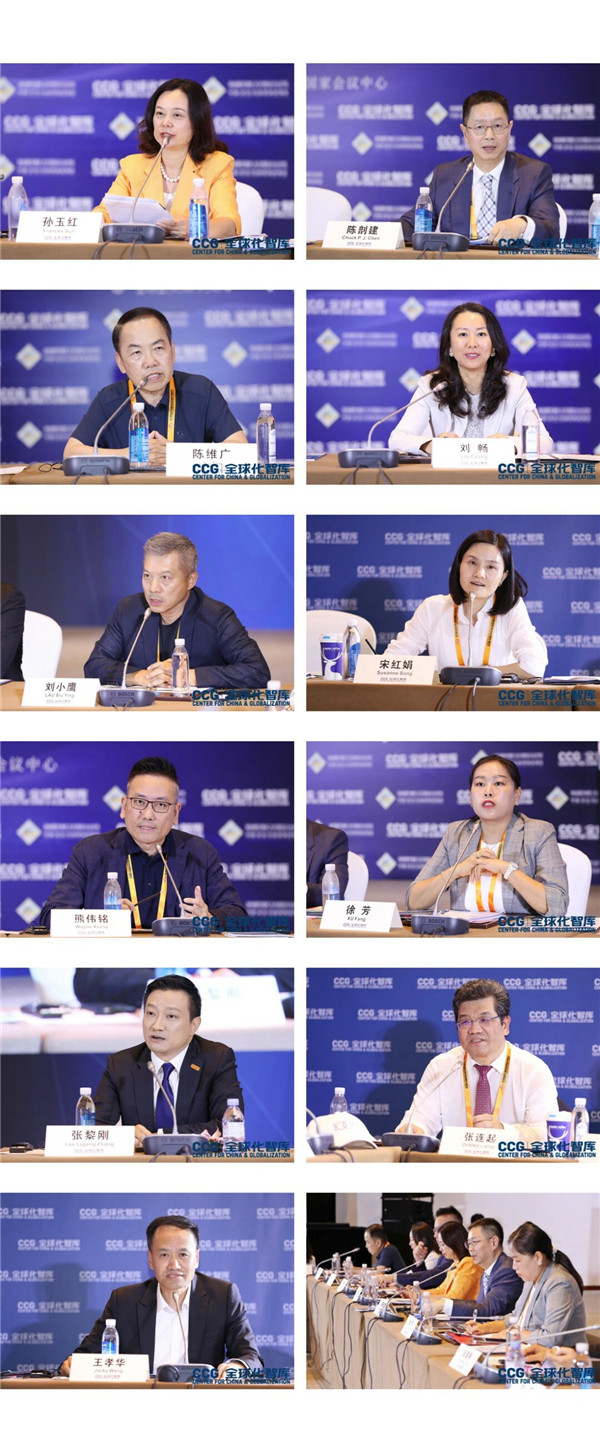 Thematic Roundtable 1: Trends in the Chinese Economy and Investment Strategies
Thematic Roundtable 1: Trends in the Chinese Economy and Investment Strategies
Thematic Roundtable 2: The Quest for Innovation: Institutions and Ecosystems

Thematic Roundtable 3: Pathways to Net-Zero and Green Transition: Business
Videos | CCG 10th China Inbound-Outbound Forum
